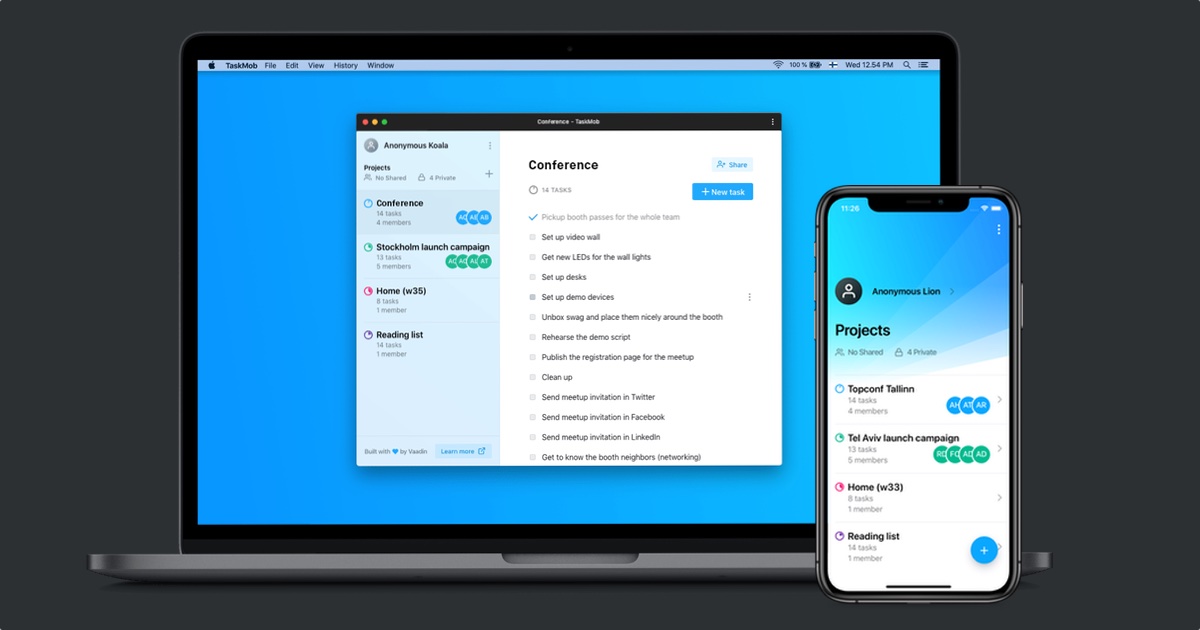
Over 50% of internet traffic is on mobile. On average, adults in the US spend almost 3 hours on smartphones every day, 90% of that using apps.
If you're building a consumer-facing app, you need to offer a great mobile experience to attract customers.
But what if you’re building an internal app for your company? Do you still need a mobile app? If yes, what’s the most cost-effective way to offer an app that’s optimized for mobile?
What are Progressive Web Applications?
Progressive Web Applications (PWAs) are a new class of application that is native to the web platform, but runs seamlessly on all platforms and devices. It is no longer necessary to build separate apps targeting Android, iOS, and the web.
With PWAs, you can concentrate your efforts on building a single app that provides an engaging, native-like experience on all platforms.
The new PWA web technologies help you create apps that are fast, reliable, engaging, and work on any device. PWAs load quickly and use custom caching to ensure they stay reliably fast even in poor network conditions.
You can install PWAs on both mobile and desktop, and even send push notifications to inform users about important events.
The business benefits of PWAs
Many corporate leaders have adopted the PWA technology and used it to build their production apps. Notable examples include Microsoft, Twitter, Starbucks, Spotify, and Lyft.
Numerous companies that offer consumer-facing apps have reported significant business benefits after modernizing their apps with PWA technology:
- Twitter noted an improvement in customer engagement (20% decrease in bounce rates coupled with a 20% increase in pages per session).
- Trivago saw a 150% increase in return visits.
- Lancome’s online sales increased by 16% year-over-year.
If you are building a consumer-facing app, PWAs offer a compelling alternative.
Are PWAs suitable for business apps?
Business apps differ from consumer-facing apps in many respects. They are typically:
- Used only internally within the company.
- Built on a limited budget as they are not intended as money-making products
- Maintained for several years.
- Utilized to drive critical business processes.
Over the last decade, business apps have primarily been built as desktop web applications. This, however, may no longer be the best solution, because mobile devices:
- Have become more and more common and sophisticated, even in enterprise environments.
- Are increasingly used by employees who work remotely and use their devices for off-site work.
- Have become an integral part of many business processes, for instance in warehouse management or as a point of sales terminal.
Today, when you build new business apps, you need to prioritize the requirements of mobile users. For many companies, this has meant the increased cost and complexity of hiring teams to build separate apps for web, Android, and iOS.
Cost savings through simplified development
Building a PWA means that you don’t need to build 2 or 3 different apps. You can give users on all platforms a fast, reliable, and engaging experience with a single app.
Adopting PWA technology to build your apps means you only need to build and maintain one app, instead of several platform-specific apps. This translates to:
- Reduced development and maintenance costs.
- The need for fewer skill sets.
- Simplified distribution.
PWA can be installed directly from any browser and there is no need to go through an app store. This means that you don’t need to distribute binaries or support old API versions because users failed to update their app.
How Vaadin can help you build a PWA
All applications built with Vaadin 14 or later can be turned into Progressive Web Apps by simply adding a @PWA annotation. This annotation allows your users to install your application on their devices, and adds a custom icon and name. You can also specify the fallback page that is displayed whenever the app is offline.
In coming Vaadin releases, we intend to add additional PWA features to the framework. These features will help you send web push notifications and build offline functionality.
Vaadin can also help you design and build a custom PWA. Contact us below and tell us a bit about the kind of app you hope to build.
